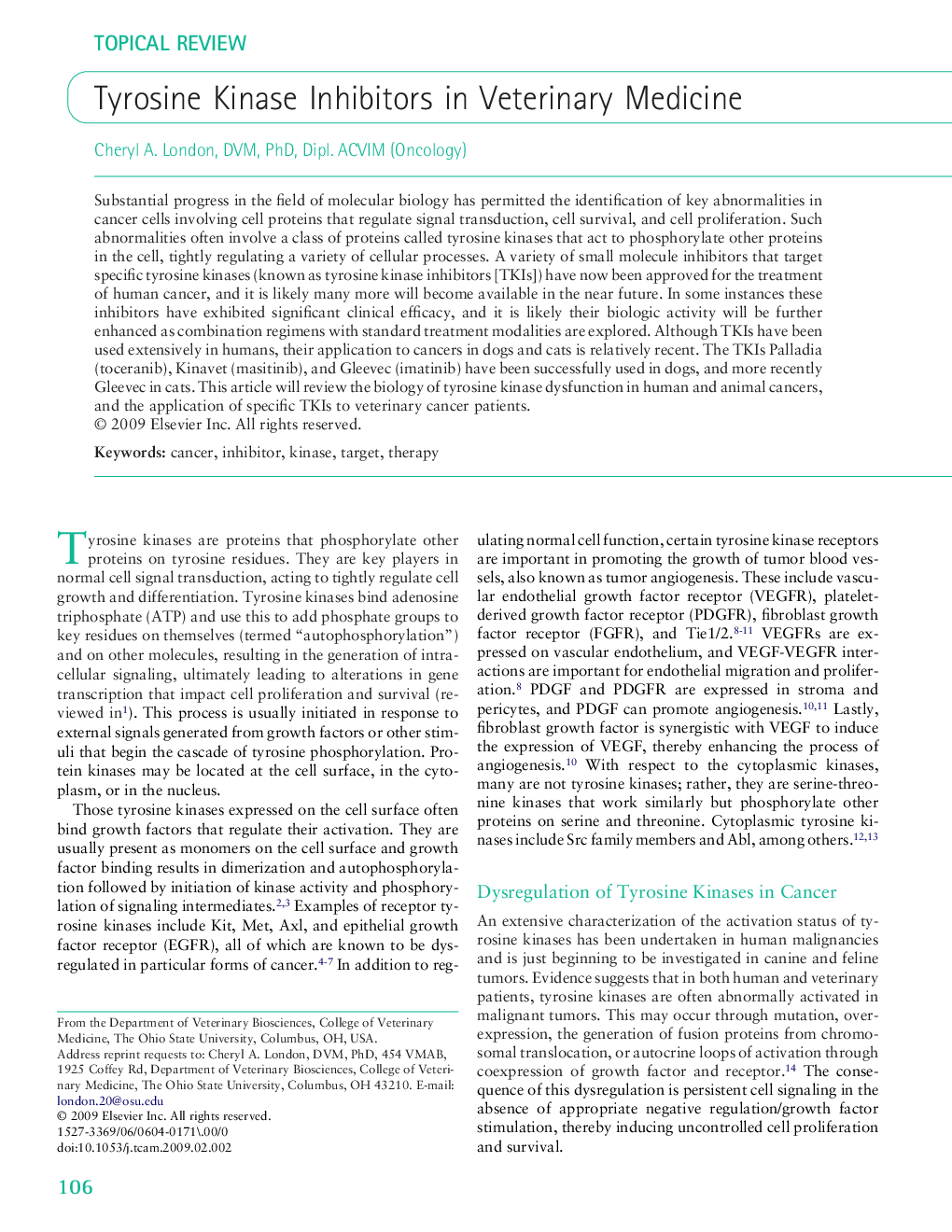| Article ID | Journal | Published Year | Pages | File Type |
|---|---|---|---|---|
| 2401296 | Topics in Companion Animal Medicine | 2009 | 7 Pages |
Substantial progress in the field of molecular biology has permitted the identification of key abnormalities in cancer cells involving cell proteins that regulate signal transduction, cell survival, and cell proliferation. Such abnormalities often involve a class of proteins called tyrosine kinases that act to phosphorylate other proteins in the cell, tightly regulating a variety of cellular processes. A variety of small molecule inhibitors that target specific tyrosine kinases (known as tyrosine kinase inhibitors [TKIs]) have now been approved for the treatment of human cancer, and it is likely many more will become available in the near future. In some instances these inhibitors have exhibited significant clinical efficacy, and it is likely their biologic activity will be further enhanced as combination regimens with standard treatment modalities are explored. Although TKIs have been used extensively in humans, their application to cancers in dogs and cats is relatively recent. The TKIs Palladia (toceranib), Kinavet (masitinib), and Gleevec (imatinib) have been successfully used in dogs, and more recently Gleevec in cats. This article will review the biology of tyrosine kinase dysfunction in human and animal cancers, and the application of specific TKIs to veterinary cancer patients.
